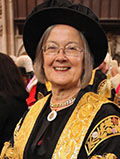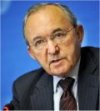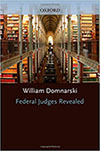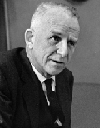Published
by the International Judicial Academy, Washington, D.C., with assistance
from the
American Society of International Law
Summer 2017 Issue |
Lady Justice Brenda Hale Chosen to Lead U.K. Supreme Court
 |
|
By: James G. Apple
Editor-in-Chief,
International
Judicial Monitor
The Supreme Court of the United Kingdom announced on July 21
the selection of Lady Justice Brenda Hale as the President of the Court. She
was previously Deputy President of the Court. She has been a member of the
Supreme Court since the Court was created in 2009 to replace the House of Lords
Law Committee, which had served as the highest court in the U.K since the 16th Century.. Before the creation of the Supreme Court Lady Justice Hale was a Lord
of Appeal in Ordinary (Law Lord) having been appointed to that position in
2004. |
Justices of the Supreme Court of the United Kingdom and
other judges are selected by an independent Judicial Selections Commission.
Three other appointments to the Supreme Court were also
announced. Judge Jill Black of the Court of Appeal was elevated to the supreme
bench, becoming the second woman to serve on the Supreme Court. David Lloyd
Jones and Michael Briggs were also selected for service on the Court.
Lady Justice Hale has long been an outspoken advocate for
more women in the judiciary. She has also been a proponent of more diversity in
the judiciary. She can serve in her new position until she reaches age 75
because she became a judge before the rules were changed to require judges to
retire at age 70. She is currently age 72.
Both Lady Justice Hale and Lady Justice Black are experts in
family law.
Justice Hale was born in Yorkshire, England and educated in
Richmond. She attended Girton College, University of Cambridge where she
studied law and graduated with first class honors. She was called to the Bar by
Gray’s Inn in 1969. She was a professor of law at the University of Manchester
for many years and in 1989 was appointed Queen’s Counsel.
Her first judicial appointment was as a Recorder (part time
judge) in 1989. Five years later she was promoted to the Family Court of the High
Court of Justice. In another five years she was appointed to the Court of
Appeal, becoming only the second woman to be selected for that court (with such
appointment she became a member of the Privy Council).
Lady Justice Hale has been awarded honorary degrees from the
University of Salsford, the University of Reading, and the University of
Glasgow.
|

 |
Justice
in Profile
Sergio Moro, Judge (Brazil)
By: James G. Apple,
Editor-in-Chief, International Judicial Monitor
One of the more consistent political issues that has plagued
Brazil over the past decade has been corruption, apparently centered in the
executive branch, but seemingly spilling over into the judicial branch. Judges,
even some at the highest levels, have not been immune from charges of
corruption in their judicial duties.
(Read
More ») |
| |
|
 |
International
Tribunal Spotlight
ECOWAS Community Court of Justice
By: James G. Apple,
Editor-in-Chief, International Judicial Monitor
The Economic Community of West African States (ECOWAS), an
organization of 15 West African countries, was established in May, 1975.
(Read
More »)
|
| |
|
 |
100 Ways
International Law: One Hundred Ways It Shapes Our Lives
Mailing a letter reliably and easily to anyone in the world.
By: James G. Apple, Editor-in-Chief, International
Judicial Monitor
The idea of a viable postal service existing in our modern
world, considering the dominance of electronic mail and social networks
available as a means of communication, seems irrational.
(Read
More »)
|
| |
|
 |
Hague Happenings
Prosecuting
Former Child Soldiers: the Case of Dominic Ongwen at the ICC
By: Iva Vukusic,
International Judicial Monitor
Correspondent in The Hague
The
International Criminal Court (ICC) has been hearing one of its most interesting
cases yet, against a former child soldier from northern Uganda, accused of
perpetrating crimes similar to those he had suffered himself. (Read
More »)
|
| Publication
Subscribe/Unsubscribe |
|
|
| RSS
Feed |
 Subscribe to the RSS Feed for this Publication. Subscribe to the RSS Feed for this Publication. |
|
|
|
| Editorial |
The Need for Speaking Out
By: James G. Apple, Editor-in-Chief, International
Judicial Monitor
I subscribe to several U.S. magazines, and receive others
as a result of memberships in organizations. I find them valuable, as they fill
the gap between daily journalism offerings found in newspapers, and books which
come along months or years after a particular event or movement.
(Read More »)
|
|
 |
|
 |
| Historic
Moments in International Law |
Profiting from War: The Law and Practice
of Medieval Prisoner Ransom
By: Stephen
C. Neff, Reader in Law – Public International Law, University of Edinburgh Law
School
The valiant Achilles – that paragon of
Greek warrior-heroes – is not ordinarily associated with economic
entrepreneurship or war profiteering. (Read More ») |
|
|
|
 |
| Special Report |
Power of
the Purse: A
Macro-Survey of Recent Financing at International Criminal
Courts
and Tribunals with Special Emphasis on the International Criminal Court By: Jim Ransdell, Law Clerk, U.S. Court of
International Trade; LL.M. Public International Law, Leiden University
Since 2009, seven international or ‘hybrid’ criminal
tribunals have opened or closed. International criminal law’s institutional
landscape is thus in great flux. (Read More »)
|
|
 |
|
 |
| Judicial Tourism |
The Hague: Growing to Become the International Law Center
of the World
By: James G. Apple, Editor-in-Chief, International
Judicial Monitor
The Hague is not a prominent destination for tourists and
travelers outside of the European Union. It has a robust tourist industry, but
statistics show that most of the visitors come from Belgium, Germany and
France. (Read More »)
|
|

|
|
 |
 |
 |
|
 |
 |
| Global Judicial Perspective |
The Independent International Commission of Inquiry on the Syrian Arab Republic
By: Richard A. Goldstone, Former Justice, Constitutional Court of South Africa, First Chief Prosecutor of the International Criminal Tribunal for Yugoslavia, and Regular Columnist, International Judicial Monitor
On August 22, 2011 the United Nations Human Rights Council
established The Independent International Commission of Inquiry on the Syrian
Arab Republic.
(Read More ») |
|
 |
|
 |
| Special Report |
The IIIM: A
Justice Experiment in Geneva
By: Iva Vukusic, International Judicial Monitor Correspondent in The Hague
Faced with
growing frustration over inaction about the widespread violations of
international law taking place in Syria in the past six years, in December
2016, the United Nations General Assembly did something unusual.
(Read More »)
|
|

|
|
 |
| Leading Figures in
International Law |
John Peters Humphrey, Lawyer
Canada
The Universal Declaration of Human Rights, adopted after the
conference that produced the Charter of the United Nations, is usually
associated with Eleanor Roosevelt, member of the United States delegation to the UN
organizing assembly.
(Read More ») |
|
|
|
 |
| In
Review: Books About International Law and About Courts and Judges
|
Federal Judges Revealed
By: William Domnarski
Oxford University Press. 2009
Reviewed by: James G. Apple, Editor-in-Chief, International
Judicial Monitor
The lives of judges, including the private or personal lives
as well as their legal ones, are not the frequent subjects of authors. While
commentaries about judicial duties appear from time to time, private judicial
lives are hidden behind a legal curtain. (Read
More ») |
|
 |
|
 |
 |
 |
 |
 |
|
|
 International
Judicial Monitor International
Judicial Monitor
© 2017 – The International Judicial Academy
with assistance
from the American Society of International Law.
Editor: James G. Apple.
IJM welcomes comments, suggestions, and submissions.
Please contact the IJM editor at ijaworld@verizon.net. |
|

 International
Judicial Monitor
International
Judicial Monitor












